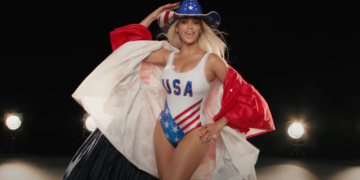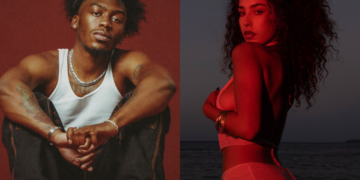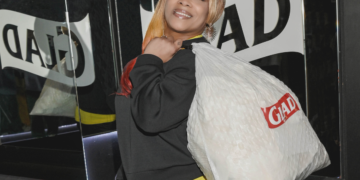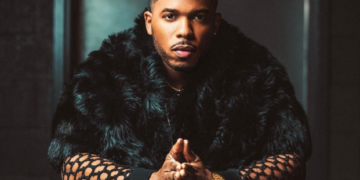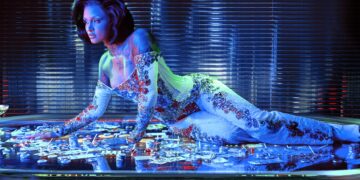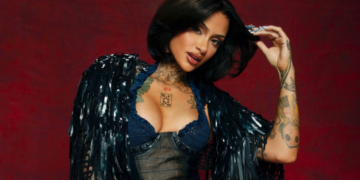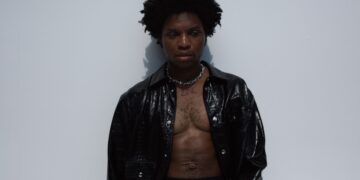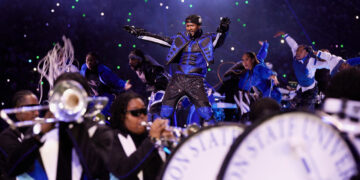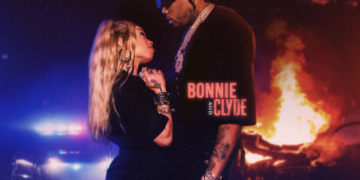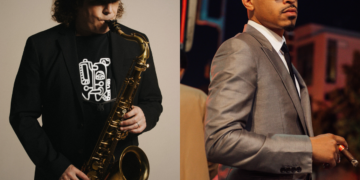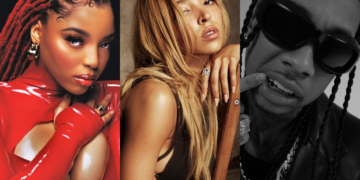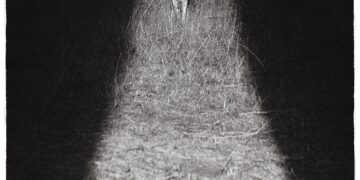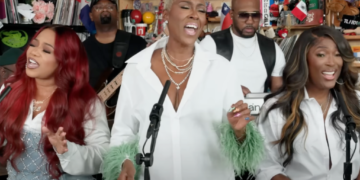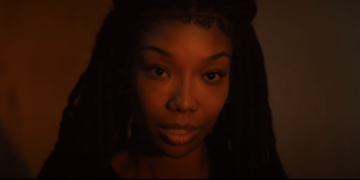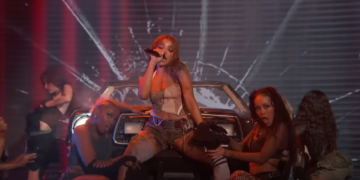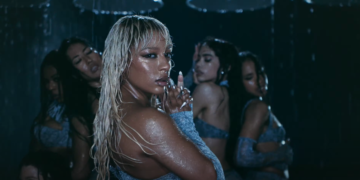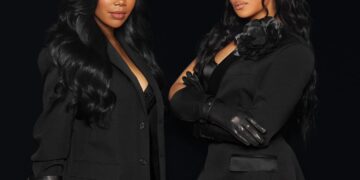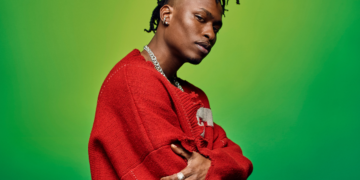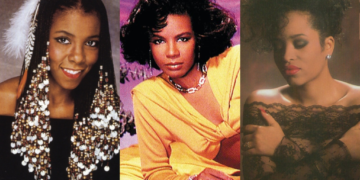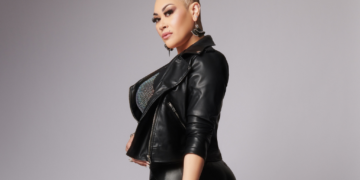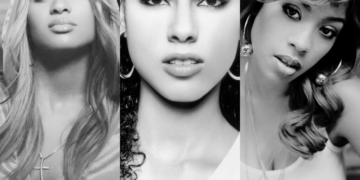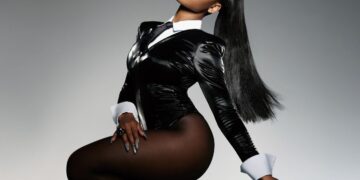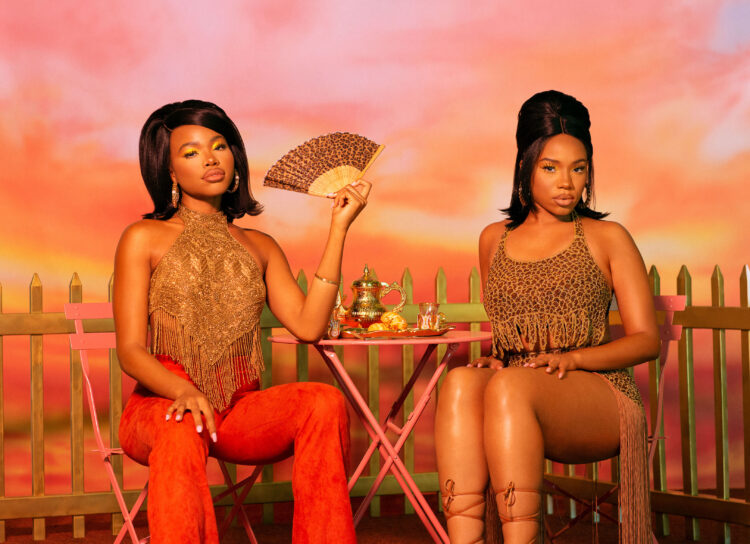Working from home is nothing new to Ivana and Jessica Nwokike, professionally known as VanJess. Before signing a deal with Keep Cool/RCA Records in 2018, the R&B sister duo spent many years establishing their sound online. In summer 2009, the then-aspiring singers uploaded a cover of Mariah Carey’s hit single “Obsessed.”
“Un, deux, trois, quatre,” Ivana softly counted in French, as the two stood in their pink-walled bathroom. She immediately went into beatbox mode, providing a baseline for Jessica to join in with her smoky-toned voice. Ivana later joins in for the chorus and to provide harmonic ad-libs. Their 90-second video went viral, and it was at that point when they decided it was time to focus on laying the groundwork for a music career.
Over the next few years, VanJess recorded more song covers from the comfort of their home in hopes of boosting their visibility as an R&B act. With each cover, they added their own spin with soothing arrangements, proving that they were far from karaoke singers. From their ‘90s R&B medley to even their ear-pleasing rendition of Lady Gaga’s “Bad Romance,” Ivana and Jessica garnered millions of views with their stirring vocal abilities.
In 2016, VanJess released “Adore,” a trap soul-influenced tune made specifically for the bedroom. They released a few more tracks that same year, including their Masego-assisted bop “Touch the Floor.” The pulsating tune ended up being among the tracks on their debut album, Silk Canvas. Interestingly, “Adore” did not make it to Silk Canvas.
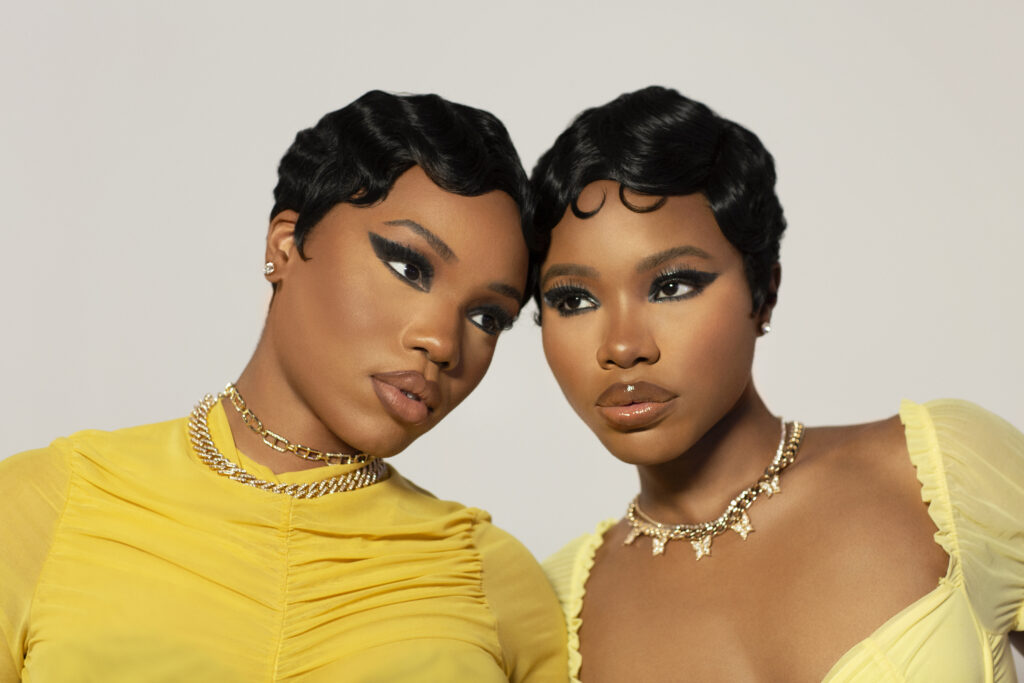
Before Silk Canvas dropped, VanJess had teased another project: It was called Homegrown. The sister duo hinted at the project in the description section of the official video for “Adore.”
“We just knew we wanted to release a project back in 2016,” Jessica states over an UberConference call. “We were like, ‘Whatever project we put out, we should call Homegrown.’ At that time, we were completely independent and doing it in our own way because people really weren’t giving us a chance,” she adds.
VanJess didn’t move forward with Homegrown at the time, but they never lost sight of their vision. Not long after joining fellow R&B singer Gallant on his Sweet Insomnia Tour in early 2020, they found themselves in quarantine due to the rising COVID-19 cases.
Given all the restrictions set in place to help slow the spread of the virus, things such as trips to recording studios and performing at music venues were — and pretty much still are — on hold. Amid the uncertainty, VanJess decided to revert to familiar territory: creating and sharing content from home.
“The plans that we originally had, had to shift,” says Ivana. The two decided to share covers on their social media platforms to “give people some good energy and good vibes.”
This is a song we wrote called come over. pic.twitter.com/YruDenalJK
— VanJess (@vanjess) May 4, 2020
In the midst of their song covers, VanJess also gave their devoted fans a taste of unreleased music. They decided to share a snippet of an unfinished version of “Come Over,” a song they wrote four years prior. “It was just an acoustic. There was no production or anything,” Ivana says. They received positive feedback from fans who urged them to release the inviting anthem officially.
As they spent more time at home, the idea of a project came to mind. “We were home again, building a home studio again and doing covers again,” Jessica says. Being at home inspired VanJess to revisit the idea of Homegrown. Jessica explains that doing covers brought them back to their early beginnings as aspiring artists. “We felt like we really came full circle,” she says. “I think we just came to this realization that we’re still kind of the same people. We’re still homegrown in a sense, you know what I mean? We’ve never changed the way we’ve done things.”
The disco-drenched “Come Over” became the song that later helped shape the overall sound of VanJess’ EP, Homegrown, which is out now. The project includes collaborations with Jimi Trents, Garren, Phony Ppl and Devin Morrison.
“We kind of created our whole EP rollout through that song and just found a bunch of songs that kind of coincidentally went with it,” says Ivana.
Jessica adds, “It made us really go back to songs that I think we kind of slept on like ‘Caught Up,’ which we also wrote four years ago.” “Caught Up,” which features an appearance from the genre-bending band Phony Ppl.
Although Homegrown is not a full-length album, it doesn’t take away from the significance of the project. “I think for this particular project, we really wanted to give a really clear image of who we are through the visuals,” Ivana reveals.
In our interview with VanJess, the duo talks about the meaning behind Homegrown, how they embrace their Nigerian heritage into their artistry, their musical relationship with KAYTRANADA and more.
“Slow Down” is one of the standout songs on the project. What was the creative process behind that song?
JESSICA: It was our first session with Snakehips, who we’ve been wanting to work with for such a long time. I just remember thinking about how the things that mattered and time. At the end of the day, there are those people in your life that just — the concept of time just gets erased sometimes. You just feel like you’re in a moment with somebody. I just wanted to put that into words. I came up with the hook and Ivana just played off that. She kind of had her own words. It all coincided because she had a very specific message.
IVANA: That’s the beautiful thing about when we work. Sometimes we’re just in our own vibes and we’ll just be writing about something that’s in the same exact world. I was just thinking about what we all need when it comes to who our partner and just trying to say it very simply. Time is truly timeless and that’s what really the message of the song was.
Some songs on the EP appear to be written in a way that has multiple interpretations. Records like “High & Dry” have some sexual undertones with lyrics like, “Tip-toe in the garden of my Nubian oasis.” Can you talk more about your songwriting approach?
JESSICA: (Laughs) Sometimes, I intentionally do that where I try to say things in a way where you can do what you want with it. It’s beautiful to just leave little messages and allow people to interpret them. I think there’s something powerful in that.
Your image for this project has shifted from Silk Canvas. It seems to be more defined and consistent. What was your thought process this time around?
JESSICA: We asked ourselves, “If we were quarantined in the ‘70s, in Nigeria, how would we dress?” That came from just thinking about our parents. They grew up in Nigeria in the ‘70s. We always get so inspired looking through old albums of them and their style. Also, just being Nigerian-Americans and having that dual identity. We wanted to showcase who we were this time around because a lot of people don’t even know we’re two people.
With Silk Canvas, it was a bit more an ambiguous image. This time around, we wanted people to see us and know who we were through our visuals and tell a story. From that, we ended up working with Ugo Mozie, who is also Nigerian. We knew he would really understand our story and what we were wanting to portray. So when we were referencing Nollywood, which is Nigerian Hollywood, and giving images from that time being inspired, he got it instantly. That was really the inspiration for “Come Over” and that music video.
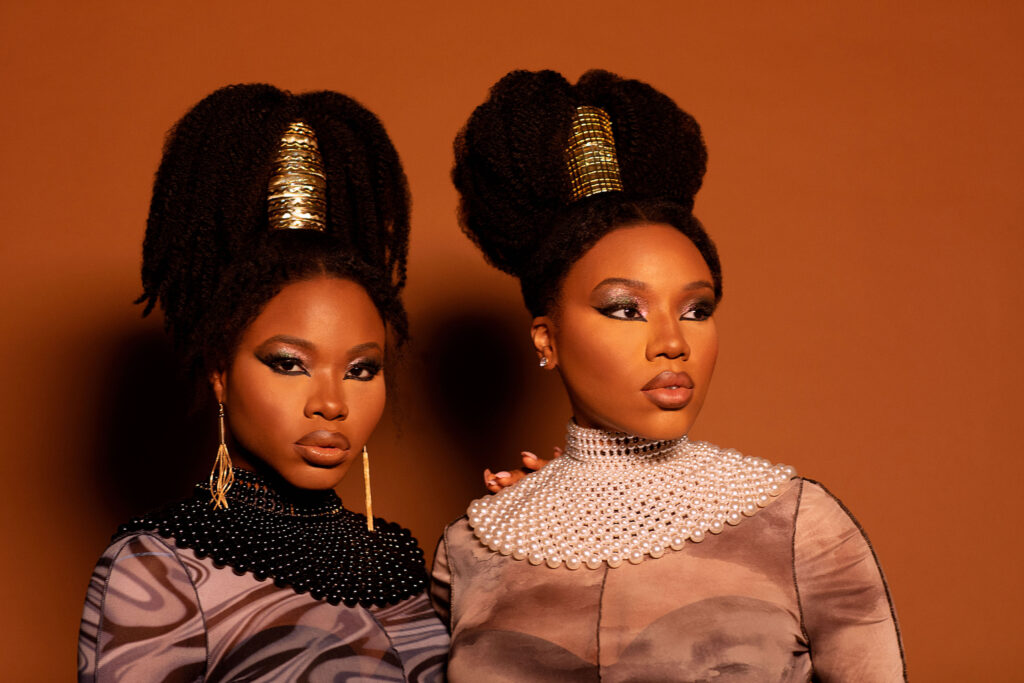
How important was it to incorporate your Nigerian roots into your artistry?
JESSICA: It was so important to us because being African is a trend right now — or just wanting to be African — and it’s like, that’s just who we are. It was really important to us to showcase that in a way that was authentic and not performative. We literally set up the backdrops. I put my iPhone up, and we did the photoshoot at home. That was how the first three single covers came to be. It was really cool to showcase our vision. Our goal was just how we wanted to represent ourselves this time around and going forward. For people to understand it and appreciate it was just the icing on the cake for us.
How has your experience as Nigerian-Americans influenced your music, specifically on Homegrown?
IVANA: I think for this particular project, we really wanted to give a really clear image of who we are through the visuals. That was really our intention. We’ve always had a very ambiguous image. We really wanted everyone to get a taste of what we’re bringing, but also, ‘Hey, we are Nigerian-American girls and we were born in the States.’ As Jess said, it can be kind of performative if you’re doing something that isn’t necessarily you. Yes, we are Nigerian. That’s who we are, but we didn’t grow up in Nigeria in our teenage years. We grew up in Nigeria in our childhood years. So, for us to kind of make full-on Afrobeat or something, that’s not our experience. I think for this particular project, it really kind of just came together. Homegrown is just about who we are, making everything at home. We did the artwork at home. We recorded “Come Over” at home. We were shooting our covers from YouTube in our bathroom. That’s our essence, essentially.
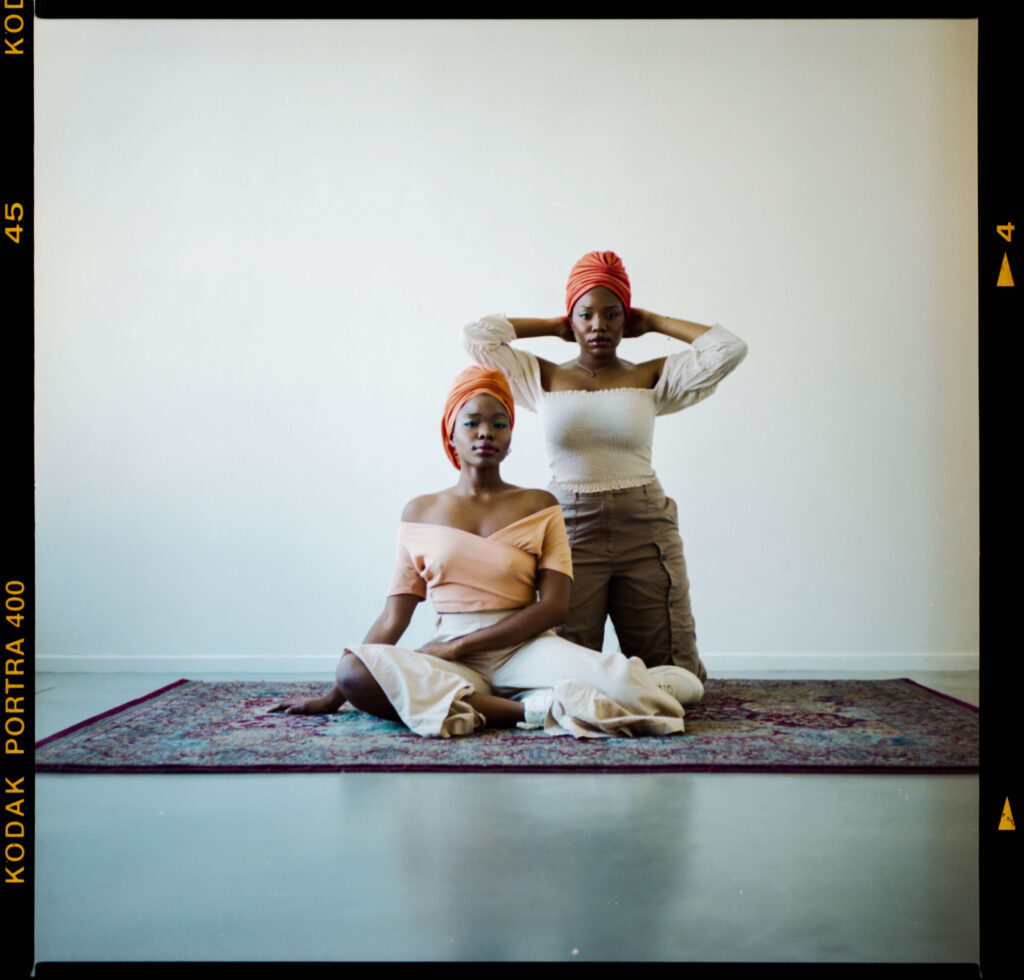
Your 2019 collaboration with KAYTRANADA, “Dysfunctional,” was included on the final tracklist. You collaborated with him a few times now. How would you describe your creative relationship?
IVANA: We’ve loved Kaytranada forever. I remember DMing him on SoundCloud, like, ‘Hey, it would be a dream to work with you’ and that DM never got responded to back then (laughs) but when the opportunity came and it was like, “Wow! We actually have a chance to work with this guy.” One day we’re chilling at home and we get a text from our A&R saying, “Kaytranada is looking to have you guys come to the studio because Mary J. Blige canceled.” And we’re like, “Yeah, we’re gonna definitely go.” So we instantly left the house, took a whole Uber, got to the studio and it was history. That was how we got “Dysfunctional.” It was our first time working with him in the studio. It was magic.
JESSICA: I just remember him saying, “Oh my God. I started on this song, but I don’t know. If you guys want to vibe like, vibe.” He actually had a hook idea, but he was kinda mumbling. We just put the words together and he’s like, “Are you guys gonna sing it?” And we’re like, “No, you sing it” (laughs). He ended up doing it. It was cool to see him push to do that. Then we worked on the verses. I think I was thinking about the episode of The Proud Family where Bobby Proud has a song called “So Disfunkshunal.” I thought there’s not [enough] songs using that word (dysfunctional). That was kind of where the words came from for some reason.
“Come Over Again” samples Faith Evans’ 1995 classic “Come Over” from her eponymous debut album. How did that come to fruition?
JESSICA: It’s crazy because we were going to go to the studio to record a remix version with the same producer that did “Come Over,” which was great. Our A&R messaged us one night, “What do you think of his beat?” We’re like, “Wait. Hold on. This is cool.” Then he was like, “I found the beat and I realized it sampled a song called ‘Come Over’ and I just felt like it’s so meant to be.” We just got so inspired. The next day we went into the studio and just cut it. It kind of became the remix — just a bit more special.
What do you want listeners to take away from Homegrown?
IVANA: We’re all going through things right now, but you know, at least we have music to just kind of take us away from all this and just get some good energy. We hope that everyone can feel good listening to it just as much as we felt good creating it.
JESSICA: Also, we have an album we’re going to drop as well. So just know like this is just the beginning of music from us this year and just stay tuned for the album.
Will the album be an extension of Homegrown?
It won’t be like Homegrown part two. It’s going to be its own thing.
Stream VanJess’ Homegrown EP below.

